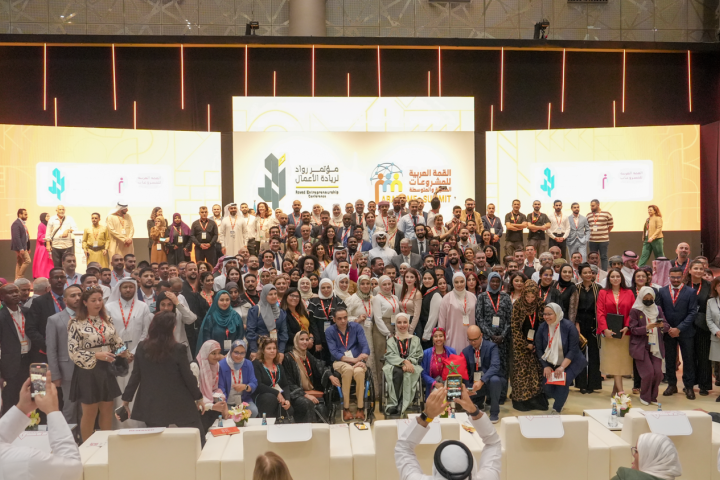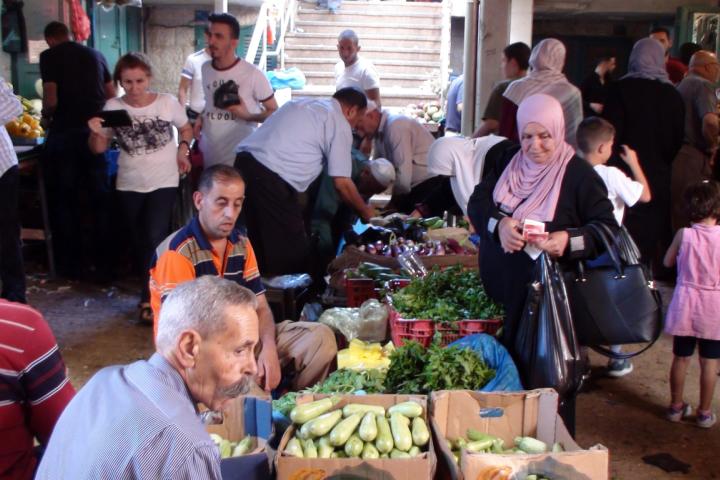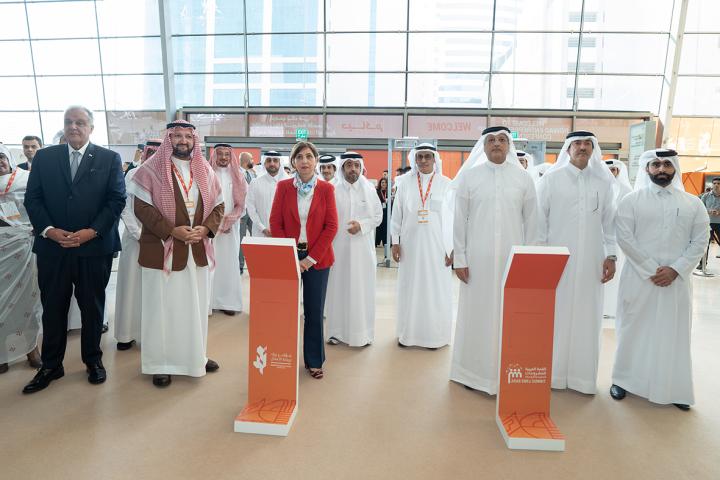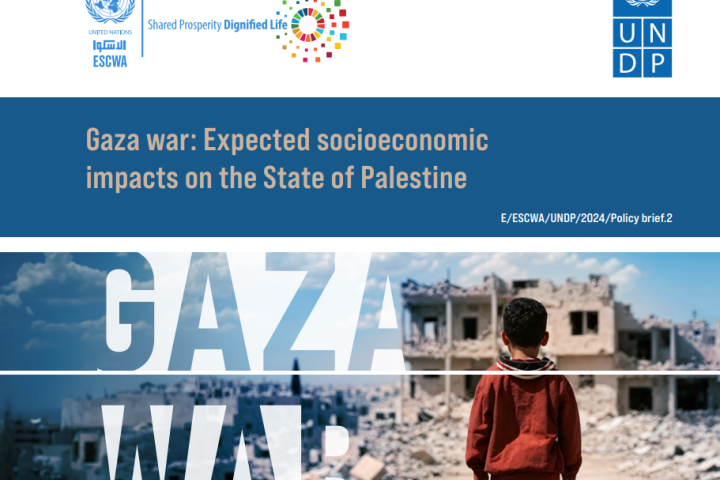The National Conference on Integrated Social Policy in Egypt opened today at the Pyramisa Hotel in Cairo under the auspices of the Egyptian First Lady, Ms. Suzan Mubarak. Speaking at the opening session were Mr. James Rawley, UN Resident Coordinator in Egypt and Resident Representative of the United Nations Development Programme (UNDP), Ms. Mervat Tallawy, Executive Secretary of the United Nations Economic and Social Commission for Western Asia (UN-ESCWA) and Mr. Ali Al-Meselhi, Egyptian Minister of Social Solidarity.
In his statement, Mr. Rawley said, "Ignoring social equity is no longer an option. These sentiments are echoed in the latest National Human Development Report, which reaffirms that Egypt can no longer afford to ignore the "business as usual" approach to the many developmental challenges it is facing." He added, "In comparison to 2005, Egypt's rank in the 2006 human development index (HDI) improved from 119th to 111th place among the 177 countries surveyed. The HDI measures the average achievements in a country in three basic dimensions of human development: longevity, knowledge-combining education and literacy, and income." Rawley also said that the Egyptian government realized that there was no ready-made blueprint for social reform, noting that there was a need to benefit from the relevant international experiences like India, Chile, Malaysia, Mexico and Korea. Rawley praised the organization of the conference "which is about equitable growth that improves the standard of living for all citizens and ensures social stability." He said that it was an important step in the country's development agenda, which would be followed with actions and programs on the ground where the UN was well positioned to provide support in different domains such as child related policies with the UN International Children Emergency Fund (UNICEF), population issues with the UN Population Fund (UNFPA), food security and targeting with the World Food Program (WFP), and on matters related to social safety nets and capacity building with UNDP. Rawley concluded his statement by thanking UN-ESCWA for its contribution to bringing international experiences and knowledge to the conference and its active support to the development of social policy in the region.
For her part, Ms. Tallawy addressed the audience by raising the following questions: "Why is most criticism of the Arab states classified in the framework of social issues? Is there a lack of integrated social policy in our Arab countries? and if available, does social policy occupy priority positions that is at a level with economic policy? Is there a misconception between social policy and social services? Does the policy of the state include social issues? Is it the responsibility of the individual, the head of the family or the head of the tribe, which leads to the formation of social structures based on customs and traditions instead of being based on modern, scientific foundations that take into consideration the state's common interest and its cultural specificity?" She added, "In order to answer these questions, the state ought to adopt an integrated and clear social vision of priority that possesses institutional frameworks within the legislative structures of the state that ensures stability, achieves social integration, and limits class differences in order to ensure the safety of society and its prosperity. Social policy is a translation of this vision since it specifies the criteria which orients the state's policy; consolidates civil peace through treating the reasons of marginalization or social exclusion of some groups; and facilitates the integration of all social factions in the development process whereby the economy would not only be productive and sustainable but also just. It is therefore imperative to stress the importance of forming a supportive public opinion of social policy through aware and responsible media; a cultural movement committed to social concerns, relevant education programs in addition to legislation that provides the right atmosphere for a free and responsible public opinion." Tallawy identified the reasons that were behind the success of states that had given the social policy issue special importance for decades and succeeded in preventing the problems that are currently facing a number of societies. She said, "Social policy was imperative to achieve social justice, civil peace and citizenship. It enables meeting the foreign challenges that threaten countries by extremism and division; consolidates commitment to values, ethics and principles almost devastated by the era of globalization and neo-liberalism; and ensures the link with the state's policy and its orientation so that it does not limit itself to charity work only but ensures human rights, democracy and public freedom."
The last speaker was Minister Al-Meselhi, who provided an overview of his ministry's projects in the fields of social solidarity, productive families, disaster management, social welfare, insurance and childhood. Their importance increased after the approach to the state's economic policy changed in light of exercising the open market policy. This required redoubled efforts to protect groups deserving of social care. Al-Meselhi mentioned the ongoing cooperation between his ministry and the institutions concerned with ensuring housing to people with limited income since the issue of housing was a great problem in Egypt. He also mentioned his ministry's cooperation with the Ministry of "Awkaf" to rewrite the religious mission after achieving the new social directive. Minister Al-Meselhi enumerated the entities cooperating with the Ministry of Social Solidarity to formulate and review a socio-economic model to measure the needs of the family or evaluate the degree of need in an indirect way that does not rely on income and expenditures. He concluded by hoping participants "will come up with a set of priorities rather than recommendations in order to be able to implement them, since achieving a welfare society has to be achieved through a big package of actions and there must be a re-formulation of social policy in order to face challenges."
The opening ceremony will be followed by two sessions in which participants are scheduled to discuss "Success Factors in Global which Experiences Related to Integrating Social Policy with Comprehensive Development" and the State of Social Policy in Egypt". The Conference will seek to present examples for formulating integrated social policies based on a number of successful experiences that succeeded in several countries with different development circumstances. It also aims to qualify the case of Egypt and identify which facilitating and constraining factors need to be discussed and organized so as to ensure equal opportunity, provide basic social services to all citizens equally, and compare the successful experiences of Canada, Malaysia, Tunisia Norway, and Korea with those of Egypt in order to recognize factors assisting in the formulation of integrated social policies. All this will help formulate social policy and programs such as social security, education policies, health services and employment, which can be adopted by the government at a later date.
More information can be found at this link http://www.escwa.org.lb/sp-egypt or by contacting:
Mr. Bahaa El Koussy Director United Nations Information Centre, Beirut Mobile: +961-70-118 990 Email: elkoussy@un.org
Mr. Maher Nasser Information Officer United Nations Information Centre, Cairo Mobile: 00202-790 0022 Email: mnasser@unic-eg.org
Mr. Nabil Abu-Dargham Information Officer United Nations Information Centre Mobile: +961-3-428 438 Email: dargham@un.org
Ms. Majida Khorshid Information Officer United Nations Information Centre, Cairo Mobile: 00202-790 0022 Email: mk@unic-eg.org
Ms. Margo Helou Information Assistant UN-ESCWA Mobile: +961-3-346 181 Email: helou@un.org



